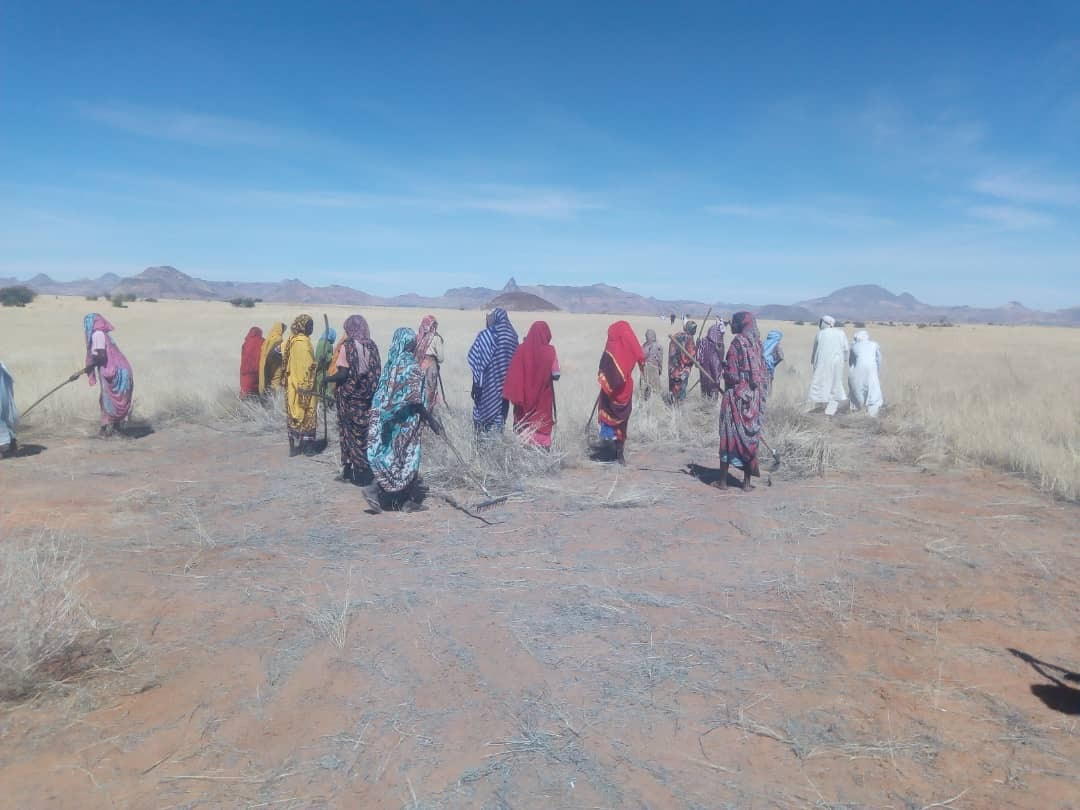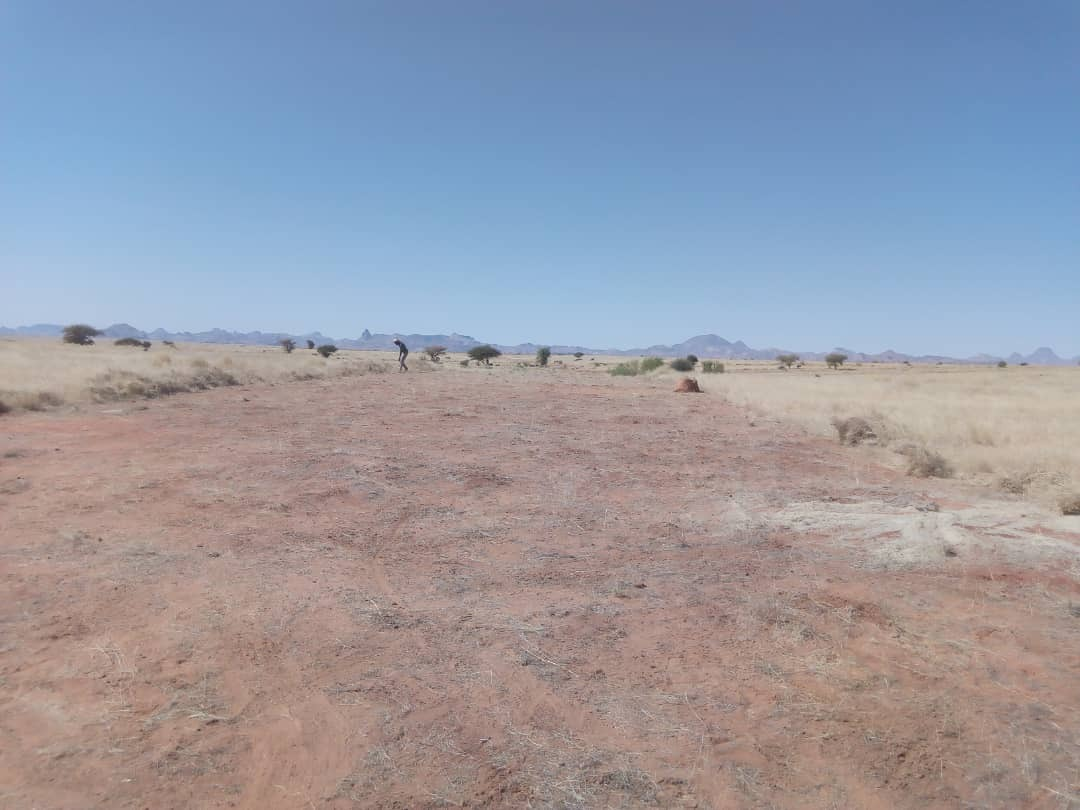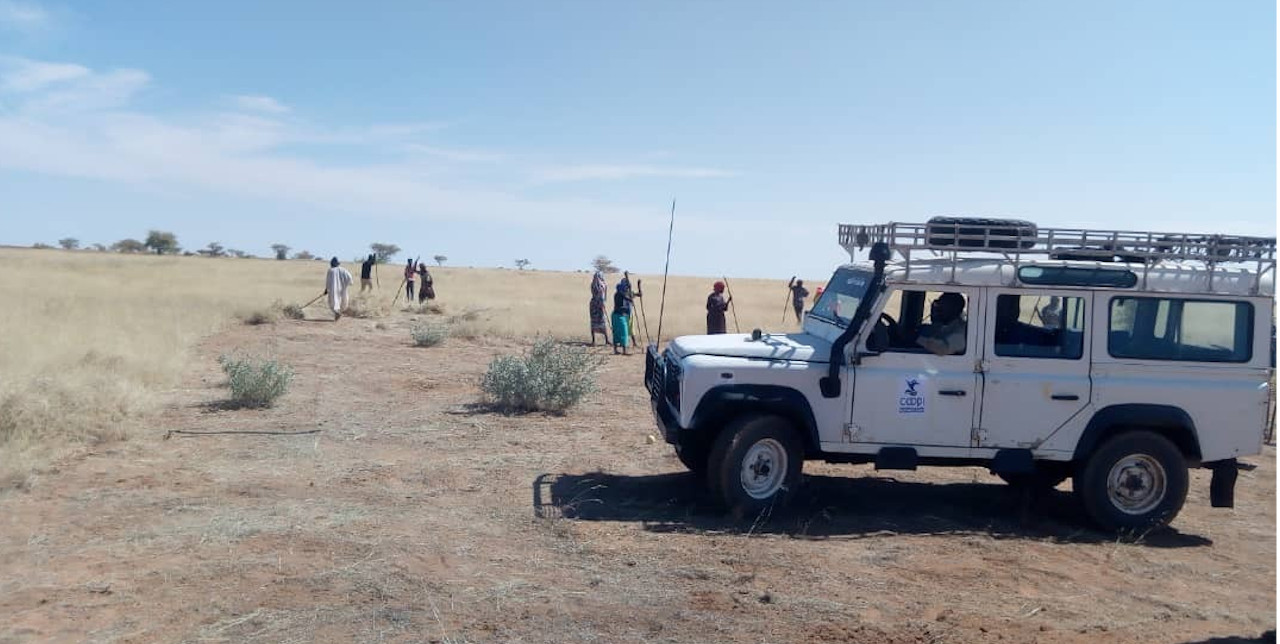10-02-2020 | di COOPI
North Darfur. Over 45 kilometres of fireline to save crop fields
Overgrazing and deforestation have resulted into a big shift in vegetation of Mellit, Mallah and Um Kaddada towns in North Darfur, which is now characterised by short grasses and short shrubs. To mitigate seasonal bush fires, especially during prolonged drought, COOPI staff trained local communities to build 45 km of fireline to preserve these areas.
A total of 108 individuals - mainly women - participated in the construction of the firelines with each earning between 2000 - 3,000 Sudanese pounds as a payment for their work.

A group of women participate in fire line construction in North Darfur
Firelines are just one of the activities envisaged by the project entitled "Strengthening Local Communities resilience to climate change in North Darfur", funded by the European Union and that will end in August 2020. Fireline is a natural or man-made gap in vegetation that acts as a barrier to stop or reduce the burnt areas of the pasture lands.
As John Bosco Wale, COOPI Project Leader in Sudan, points out, "firelines will protect pastures, forests, crops and houses, and more importantly they will improve the biomass quantity and biodiversity in North Darfur.”

Example of a completed fire line (20m wide)
By preserving crops and improving environmental sustainability, Wale continues, "we will also reduce the chances of conflicts between pastoralists and crop farmers. Social cohesion will also be strengthened given its fraility due to the effects of climate change in North Darfur.”
Climate change and the growing demand for wood in North Darfur have deeply affected natural resources and worsened conflicts between communities. By improving the management of natural resources and environmental health, COOPI aims to restore livelihoods for communities, reduce conflicts and decrease the number of internally displaced people.




 Sudan
Sudan